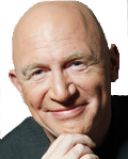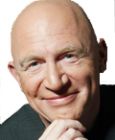
Spirituality
The False Promises of Pop-Spiritualities
Pop-Spirituality Bestsellers can sometimes be noxious
Posted April 6, 2011
Pop-spiritualities that promise wonders are not new. The genre was made popular by the legendary Madame Blavatsky (depicted here), who gathered a remarkable following with her spiritualist claims in the late nineteenth century. But the genre has become a huge, profitable business in the last decades.
Because the complexity of life for Homo globalis is often overwhelming, books that promise that we have a deep power that can turn life into a combination of bliss and success enjoy phenomenal sales. The prime example is, of course Rhonda Byrne's The Secret, which is supposed to have 19 million copies in print, followed by The Secret Daily Teachings, The Secret Gratitude Book, and, most recently The Secret: The Power. Background research reported in Newsweek showed that Rhonda Byrnes' inspiration for The Secret came primarily from an old book by one Wallace D. Wattles, The Science of Getting Rich, which she was handed by one of her children when the reality-TV show she was producing was losing its rating.
She then contacted a couple that had been making tons of money through selling basically the Law of Attraction. Esther Hicks claimed to get her "knowledge" through spirits she was in contact with, and whom she collectively called "Abraham." We needn't be concerned about the legal tussles that emerged between the Hicks' and Byrne later.
The book is not only completely unfounded in its claims. As critics have pointed out, its thesis is also a morally despicable. Since all that happens to us is supposedly a function of our positive or negative thoughts, the millions who died either through political persecution, genocide or starvation must have brought this upon themselves, and are therefore responsible for their own demise.
Why then, do books like The Secret have such an enormous following? My hypothesis is that these spiritualities are meant to provide the assurance that achievement and spiritual well-being necessarily go together. It is this assumption of the self as a source of deep, infallible knowledge and power that promises that there are no limits to who we can become.
There are no limits, because deep inside there is an awesome power of unlimited potential: Our deep spiritual self. Once this self is unleashed, we can become the tycoons, the singers, the writers, filmmakers that we really are; and we will shed the excess weight that has nothing to do with our true self that is really slim. The true self is an infallible guide to the good life and unlimited fulfillment. If we are confused, this is only because we are disconnected from its power.
The idea that there is a true self, fully fledged, buried inside is a powerful cultural fantasy. Almost everybody at times feels that the actual lives we lead cannot be possibly all there is. Most of us feel at times, that we are like butterflies locked into a cocoon, and that the day must come in which our powerful, unlimited, butterfly-self will burst out of the cocoon and fulfill its endless potential.
The allure of pop-spirituality derives its power from this fantasy. It is very difficult for humans to resist the idea that we are really much more valuable, gifted, good and potentially successful than we are in our real lives. Belief systems that tell us that this is indeed true, and that we just need to connect to this deep self to become the success stories we hope to be, must indeed have a powerful allure --particularly if we need to cope with the fluidity and uncertainty typical of many lives today.
At this point the following objection is conceivable. "Why are you so harsh against people like Rhonda Byrne, Esther and Jerry Hicks? After all they make people feel good, they give them some optimism, and that can't be a bad thing. Aren't you just being plain elitist when you thunder against their shallowness and the lack of foundation of some of their claims? What's so bad about a little feel-good effect?"
The answer is very simple. I have no doubt that many who turn to these sellers of spiritual snake-oil suffer from genuine distress of some sort. Sometimes it may be no more than dissatisfaction with life, but sometimes they may suffer from illness; their children might be in trouble, and an ever growing number face economic hardship ranging from the loss of their pensions to having their houses taken away.
Those who suffer from real problems need real help. The price for a little "feeling-good" is much higher than defenders of pop-spirituality admit. Those who really believe that Sharma's pop-advice or Byrne's The Secret will solve their problem will pay a heavy price. First, because they may forgo actual help they need. Illness is to be taken very seriously, and it needs to be treated according to the best knowledge we have. Not only does positive thinking not cure cancer, but two pieces of research funded by millions of dollars have shown conclusively that prayer is of no help either.
The second price they pay is that of shattered hope. To take an example I have studied extensively: an ever growing number of midlifers do not find work, and they either have no pension, or their pensions are simply not enough to make ends meet. We are faced with the despair of huge numbers of people who have sent their resumes to hundreds of companies without ever being invited to interviews.
If Byrne and company were right, we would just have to teach all these people to think positively, and they would be flooded with work opportunities. But wishing for money hard enough does not bring you either money or a job, even if Oprah Winfrey endorses The Secret. My objections against many forms of pop-spirituality are therefore not just based on my distaste for baseless claims about "deep knowledge," but I believe that they are morally dubious to say the least; when false hopes are raised and then shattered by reality, the resulting despair is only more difficult to bear.
This blog post is adapted from Carlo Strenger, The Fear of Insignificance: Searching for Meaning in the Twenty-first Century.



